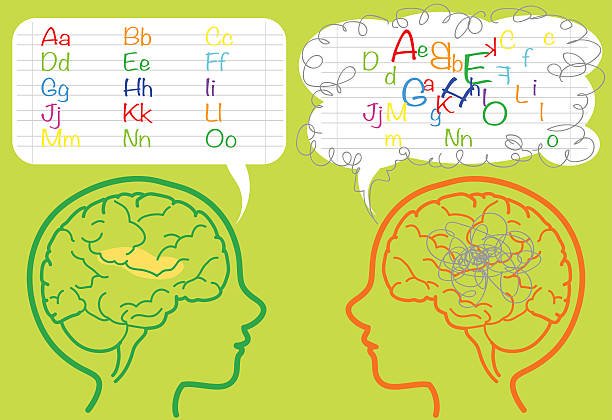This course describes in detail the many facets and procedures of the Mental Capacity Act. This includes who the act affects, when it applies, how to assess capacity and the procedures that can be put in place in the home or workplace to ensure best practices are followed and people are treated fairly at all times. It also introduces the deprivation of liberty safeguards. These safeguards provide a framework for approving the deprivation of liberty for people who lack the capacity to consent to treatment or care in either a hospital or care home setting
Number of modules: 4 Course Duration: 75 Minutes Course Price: £25
Course information

(Note: This is based on the video content shown and is rounded off. It does not account in any way for loading time or thinking time on the questions)
Author: Sales Team
Take Care of Your Mental Health this Christmas
We are in this time of year when everyone starts running out of time to find the perfect presents for their relatives and friends. Although it is one of the most festive and positive months, many of us may not see it that way. Christmas might be an extremely rough time for people suffering from mental health conditions. We gathered some useful tips to help you manage with all sorts of Christmas problems and hopefully lower the pressure you put on yourselves.
1. Don’t waste your time
Have you ever run out of tasks and end up sitting purposelessly at work? Yes? That’s great news! You can use this time to think about your Christmas presents! But don’t make them a priority and postpone your tasks to do it. You need to prioritise all your commitments and after fulfilling them (or during the lunch break) you can plan your presents.

2. Wrap up your work
During one of the busiest times of the year everyone is overloaded with work either in their workplace, at home and often both! It is important for you to know your limits. You don’t need additional tasks before Christmas if the deadline is long after the festive period. Make a list of all your work commitments and put them in the order according to their deadlines. This will help you focus on the most important tasks instead of starting for the ones that you won’t be able to finish. If you have too many tasks assigned before Christmas, try to speak with your manager to come up with some solutions.

3. Time to relax
We all need time out regardless of what’s going on in around us. It’s completely fine! You don’t need to worry about everything this Christmas. Ask your family and friends for help or, if you don’t want to ask them directly, try to convince them using some Christmas movies. Prepare a simple movie night (no special dishes – just popcorn and hot chocolate) and relax with your loved ones. After such a night you might suggest that would be fun to try out some of the movie ideas and voilà! You’ve got some voluntary help from your loved ones and priceless time you spent together.

4. Drinking – Keep an eye on that!
Don’t fall into the illusion that alcohol makes you happy and that all the problems seem to fade away after a glass of wine. The fact is that alcohol can make you feel relaxed but it’s just temporary. Your problems won’t disappear and postponing them won’t help you deal with stress. In fact, it’ll leave everything on the last minute and your stress scale might just blow up. Don’t fall into this trap. Stay with the recommended limits or just go out with your friends to reduce the stress instead of sitting at home with a bottle of wine.

5. Food Fight
Christmas time is a perfect excuse for all-day meals. We don’t do breaks. The temptation to overindulge with food is enormous and that is the reason to stop and think. Our diet has a huge impact on our mood, and this may cause some mood swings during Christmas as we all want to put the diet aside. But we need to remember that maintaining a balanced diet is extremely important to prevent irritability and to maintain stable mood.

6. Sleep Tight
With all the responsibilities and Christmas rush, people tend to disrupt their sleeping patterns to make sure that everything is perfect. But sacrificing the sleeping time just to achieve a perfectly decorated house might not be the best idea. You should have enough sleep because if you don’t, you put your mental health at risk. Divide the Christmas task between members of your family this year and make sure that all of you, including yourself, are having enough sleep during this festive time of the year.

7. Socialise
Feeling lonely can also have an impact on your mental health. For some people Christmas might feel like an emotional tornado while for others this might be the loneliest time of the year. All of us should keep in touch with our loved ones but also find it as a chance to meet new people to socialise with. Go out for the Christmas Market or Christmas Wonderland and have fun! That’s your chance to join the random choir singing Christmas songs or bump on some stranger with whom you can later go for a hot chocolate. Don’t miss out!

8. Exercise
Winter cold and exercises? It doesn’t sound like a good motivation. But that should become your routine especially during this festive time. Sport makes a huge difference for our mental health. That doesn’t mean you have to get up at 4 and go for a run so you can still stick to the schedule. Dancing around and singing also qualifies as exercises! Choose something you enjoy, and start to feel the difference in your life as this becomes routine.

9. Stretch your mind
Apart from physical exercises, you should keep your mind on track, as well. Ajuda offers a vast variety of courses including Mental Health training courses. You can increase your awareness to help yourself and others. Don’t miss out on the Mental Health & Wellbeing Show which takes place in May 2020. Christmas time is the best opportunity to offer mental help and this show might be your perfect gift for your loved ones.

Christmas time might be the most dangerous time of year for people struggling with mental health issues. Don’t underestimate it. Make sure that you, your family and friends are aware of this problem. Spread the word to make Christmas special for all people in your surroundings. Be the one that makes a change! And most importantly, be the one who cares for himself before you decide to take someone else’s problems on your shoulders.
Find time for yourself – take a long bath or go on an errand. Even five minutes for yourself might be helpful to keep your life balance.
Tips to cope with back to school anxiety

After a relaxing summer away from school, it can be nice to begin looking forward to the new school year and the new challenges that lay ahead. However, if this feeling of excitement is replaced by a strong feeling of anxiety and doubt, the next week or so can feel like one big nightmare.
Whether you are a pupil, teacher, or someone supporting these people – It’s important to try and deal with these feelings early, before they begin to affect school life and possibly the quality of education or job progress.
The Ajuda team have put together some tips to cope with this feeling of anxiety in the hope that we can support anyone struggling at the moment. If you feel your child may be suffering from back to school anxiety, give some of these strategies a try.
-
Talk over the concerns
Try to have an open conversation with them about what it is that’s causing the worry. You could perhaps encourage them to write them out into a list. Visually reading the problems can help to break them down and sometimes help them to see that there aren’t that many worries in the first place. Let them know that they can come back to you at any time if they feel worried or anxious, and you’ll always have time to sit and talk to them about it.
-
Plan how to overcome these if possible
When you are consumed with anxiety, it can be difficult to see a way out of the situation and things can seem hopeless. You can support the person by helping them go through their concerns and try to find solutions to some. If they are worried about struggling to make friends, what ways could they start a conversation? If they’re worried about getting lost or missing the bus, could they call anyone for help or find an alternative route?
-
Focus on the positives
Just like the list of worries, you could also encourage them to share the things they will look forward to about going back to school. They may have friends they haven’t seen over the holidays, or a favourite piece of playground equipment that’s only available on the school grounds. The list can help to relieve some anxiety and replace it with excitement.
- Go through some calming techniques
If you are concerned that the anxiety and stress could become overwhelming for them during school, go through some techniques that can help to relieve anxiety. Some people who regularly deal with anxiety recommend strategies such as deep breathing, or making a list of all the things in a room of a particular colour. These can help to control breathing and focus their mind on something other than the difficult situation.
If you’d like to learn more about supporting someone with anxiety, in less than 6 week’s time Ajuda will be hosting our first Talking Mental Health National Conference at Cardiff City Stadium on October 10th. The day will include inspiring stories from people who have lived with and overcome their mental health struggles, along with talks from charities and professionals involved in Mental Health Awareness.
If you’d like to join us on the day to learn more about mental health and tips on wellbeing, please order a ticket here.
Talk to Us month: Tips on Talking About Mental Health
The Ajuda team are dedicated to doing everything in our ability to spread as much knowledge and understanding of mental health as possible. Through our range of courses, events, and awareness blogs we want to teach our customers and readers a little bit about mental health and wellbeing to help others in their daily lives. In recent weeks, we have featured blogs on PTSD, Workplace Mental Health and Children’s Mental Health – and we hope to continue writing these to help people to save lives.
This month is Time to Talk month, which is a campaign organised by the Samaritans charity to raise awareness of what their service offers to local communities. Some branches will be arranging special sessions and events to connect with local people, so take a look on the Samaritans’ website to see what your local branch has planned.
This week’s blog will keep with the talking theme, and will explore ways we can encourage conversation about mental health and talk about it with others.
How you can open up a conversation.
Just asking how the people around you are feeling on a regular basis can be an important step. It develops a bond and a level of trust where people can feel more comfortable opening up to you, as they know you care and will listen.
If you are concerned about someone in particular who is showing signs of ill mental health, set aside some time to talk to them with no interruptions or distractions, in a place where they feel comfortable. Some people you will speak to may want to avoid an intense face-to-face conversation, so it could also be a good idea to ask them what they would like to do (e.g walk, listen to some music).
Although you may need to prompt the person with some questions at times, it is important to allow them to lead the conversation and share as little or as much as they would like.
Tips for listening
Make it clear to the person that you are listening to what they are saying with simple gestures such as eye contact, nodding and small verbal responses. You could also repeat back some of the things they say to reinforce the fact that you are listening and understand what they are saying. This tip can also be useful for the person to hear back their feelings in order to process them more fully.
Asking open-ended questions are the best way to allow the person to explain the situation fully in their words. Instead of saying “I can see you are feeling down” you could try “how are you feeling at the moment?” and “when did you start to feel this way?”
Keep an open mind when listening to friends or colleagues speaking about their feelings. You may not agree with some of the things they will say, but it is important to try and remain balanced so you can offer the best advice.
How you could respond.
It can help to discuss some ideas with them about ways they might want to try and feel better in the future. Remember to keep up the open-ended questions, rather than making plans for the person and possibly taking control of the situation – it’s important that they feel in control.
As much as you may like to give the person a range of tips, ideas and advice, it is also important to remember that you are not a medical professional and in some cases it may be best to signpost the person to some professional help too. You can offer to go to the doctors with them, or support them to tell other people such as their family.
Make it clear that if they ever want to speak about it again, they can arrange another time to speak to you and that day-to-day things will not change and they will not be treated differently based on what you have heard.
Remember that if you fear for their safety, or think they may have already hurt themselves, you must contact a professional immediately.
For more tips and advice, Ajuda will be hosting our first Talking Mental Health National Conference on on 10th October 2019 at Cardiff City Stadium – providing a day of keynote speakers, expert knowledge, free resources and professional advice concerning mental health and wellbeing. Tickets cost £95.00 for a full day including a 2 course lunch and refreshments, and can be ordered from our Eventbrite page here: https://www.eventbrite.co.uk/e/talking-mental-health-national-conference-tickets-61777247410
Ajuda proudly wins Veterans Business of the Year!
We are delighted to announce that Ajuda became the proud winners of the Veterans Business of the Year at the Welsh Veterans Awards earlier this week. The awards ceremony took place on Wednesday 26th June at the Village Hotel in Swansea, and welcomed a selection of Wales’ most successful veterans for a night of celebration and recognition of their achievements.
The Welsh Veterans Awards is an annual award ceremony in association with ABF Soldiers’ Charity, a cause which our director Dawn holds very closely to her heart. Dawn served in the military for 12 years, where she gained the strength and skills she possesses today, and met her husband who also served in the military.
On their website, the Welsh Veterans Awards announce: “In Wales, we have a huge number of highly successful Armed Forces Veterans that have made the transition from the Military to civilian life and we want to reward these veterans who have gone above and beyond and excelled in their relevant fields. They will act as role models for future service leavers.”

It is a huge honour for Ajuda to have been recognised among the collection of fantastic businesses and individuals who were nominated and in attendance on the night. It was amazing to be part of such an inspiring and motivating occasion, in aid of a fantastic charity, ABF Soldiers’ Charity.
This year is also very significant to the charity, as they are also celebrating 75 years in service, having been founded in 1944. The charity provide a lifetime of support to soldiers, veterans and their immediate families in a large number of ways such as financial aid, housing, elderly care, access to opportunities through training and education, along with so much more.
Later this year, in September, Dawn and her husband will be taking on a big challenge to raise money for the ABF Soldiers’ Charity. They will be climbing Mount Toubkal in Morocco, the highest mountain in North Africa. Training for the climb has been well underway for months, and now there’s just two months to go!
You can donate to Dawn and Ianto’s fundraising page here: https://www.justgiving.com/companyteams/MountToubkal19
Ajuda are also honouring the 75 year anniversary of the charity by offering all veterans 10% off any of our in-house or online courses. If you wanted to try something new and develop your skills, there’s no time better! To take a look at our courses, please click the links below.
PTSD Awareness: Causes, Symptoms and Treatment
This week on the 27th of June the world acknowledges PTSD Awareness Day to help raise knowledge, understanding and awareness of the causes and symptoms of PTSD, and how we can support those who are suffering with it in their daily lives.
The date of PTSD Awareness Day has been selected for a poignant but heartbreaking reason. In 2007, Staff Sergeant Joe Biel died after suffering from PTSD; Biel committed suicide after his return from duty to his home state. SSgt. Biel’s birthday, June 27, was selected as the official PTSD Awareness Day, which is now observed every year.
Suffering with PTSD can take over a life, and make people feel like there is no way out of their mental struggles – but there are ways that everyone can help them understand their feelings and realise that support is available out there to them.
This week, our blog will provide an overview of some signs and symptoms of PTSD, and ways that we can provide support to those living with the condition.
PTSD: What is it?
PTSD (Post Traumatic Stress Disorder) is a mental health condition which can develop after a person has survived, or sometimes witnessed, a traumatic or violent life-changing event. People who have experienced events and circumstances such as military combat, sexual assault, road traffic accidents, bereavement of a loved one, terrorist attacks, traumatic childbirth and more could develop PTSD in the aftermath.
Due to the level of trauma the incident has caused, sometimes our brains cannot process the event fully, which can cause the person to develop PTSD as the brain attempts to process what has happened.
Signs and Symptoms (provided by PTSDUK website)
Increased anxiety and emotional arousal
- Hypervigilance (On constant ‘red alert’)
- Intense physical reactions to reminders of the event (e.g. Pounding heart, nausea, muscle tension, sweating)
- Irritability or outbursts of anger
- Irrational and intense fear
- Reduced tolerance to noise (hyperacusis)
- Difficulty concentrating
- Being easily moved to tears
- Panic attacks/anxiety/depression/mood swings
- Feeling jumpy and easily startled
- Difficulty falling or staying asleep
- Anger or aggressive behaviour
- Tense muscles
Avoidance and numbing
- Work-related or relationship problems
- Inability to remember important aspect of the trauma
- Loss of interest in activities and life in general
- Sense of a limited future
- Feeling numb and empty
- Avoidance of people and places
- Feeling isolated
- Frequent periods of withdrawal into oneself
Re-experiencing the traumatic event
- Flashbacks (Acting or feeling like the event is happening again)
- Nightmares (either of the event or of other frightening things)
- Feelings of intense distress when reminded of the trauma
Other common symptoms
- Feeling suicidal
- Self harm and self-destructive tendencies
- Feeling distrustful and suspicious/blaming others
- Guilt, Shame, embarrassment or self blame
- Misuse of alcohol/drugs/gambling and/or food
- Exhaustion
- Seeking out high-risk/dangerous pursuits
- Physical aches and pains
- Over-reactions to minor situations
- Fear of being alone and fear of being in crowds
Ways you can help.
If you have a friend, loved one or colleague suffering with PTSD, you have already taken a great first step by reading this blog and other websites for advice and to learn more about the condition. Having PTSD can cause feelings of isolation, so being around for them, talking about things they want to talk about, and making it clear you are dedicated to helping them recover are the next steps.
Depending on the person, they may want to talk about the experience, or alternatively want to avoid conversations like that altogether. It’s important to allow the affected person to “lead the way” and let them make decisions on what they want to do. This will help them to feel in control of their environment and actions, which is important for recovery.
Many of the treatments of PTSD are dependant on how the individual is coping with the condition. Steps that can aid the recovery can be developing routines, reinforcing trust, having something to look forward to in the future, reminding the person that they are valued and important and many more. There are so many different ways of supporting someone with PTSD, and people will respond to different things so it can be a case of trying different things and making note of what works and what doesn’t for the person you are supporting.
—–
If you would like further support and guidance for dealing with the condition, PTSD is covered in Ajuda’s Mental Health Courses, which are run monthly in our Cardiff Bay Training Academy. We can also offer this training in a venue of your choice for a group of 12 people.
Ajuda currently offer Mental Health First Aid, Youth Mental Health First Aid, and Level 1 in Mental Health Awareness. You can view and book our Mental Health courses here: https://www.ajuda.org.uk/product-category/courses/mental-health-first-aid/
Useful Links:
PTSD UK: https://www.ptsduk.org/
Mind: www.mind.org.uk
Rethink Mental Illness: https://www.rethink.org/diagnosis-treatment/conditions/post-traumatic-stress-disorder
SANE: http://www.sane.org.uk/home
Learning Disability Week: No barriers to learning at Ajuda Training Academy.
Ajuda are dedicated to providing opportunities to as many individuals as possible, and are always interested in ways we can help more people gain vital skills and knowledge. Learning Disability Week is taking place from 17th-23rd June, and we are proud to provide opportunities to many different learners with a range of skills and abilities.
Learning disabilities charity Mencap conducted a survey of 300 18-35 year olds with learning disabilities, and the survey discovered that “49% would like to spend more time outside their house”, while “18% feel alone and cut off from other people”.
It is important that everyone feels they have the opportunity to meet new people and engage in new activities, which is why Ajuda aim to ensure there are no barriers to people wanting access to learning. We always strive to make our training inclusive and accessible for as many people as possible.
There are many ways we support learners with disabilities and limitations, in both our local training and online courses, which we offer in a huge range of subjects. If you are unsure whether our course would be suitable for a certain individual, please get in touch where our friendly team will do our very best to find a solution.
Some of the ways we can support learners…..
- For people who struggle with sight, or with learning disabilities such as dyslexia and other reading related issues, we can provide a reader on-site to help the learner through any quizzes or exams that may be required as part of their course.
- Similarly, if you struggle to read small print we can arrange to have our exam papers and resources supplied to you in larger print.
- Many of our courses are practical and taught with a different approach to simply sitting down and writing out facts and figures. If your mind is suited to a more practical and active style of learning, our team will be happy to advise you of a suitable course.
- We have recently taught a course in British Sign Language, and can offer many of our other courses including First Aid and Mental Health First Aid with the help of a BSL interpreter.
- If booked for 12 or more people, we can provide training for a group wherever they feel comfortable, which can be ideal for individuals with many varieties of mobility, social or mental disabilities.

Last year, Ajuda became part of the Remploy Community Partner Network, and now work closely with Remploy, a leading provider of specialist employment and skills support for disabled people and those with health conditions.
If you have any similar schemes or events that you feel Ajuda would be suited to, please let us know!
If you would like to learn more about learning disabilities, we have an online Learning Disability Awareness course available which provides an overview of some of the common types and causes of learning disabilities and how they affect people. The course also touches on how to adopt a person-centred approach, and ways to break down the stigma around learning disabilities.
Carers Week 2019: The Facts and Figures

According to Carers UK, “1 in 8 adults (around 6.5 million people) are carers”, with the figure set to rise in the next few years with a predicted 9 million people to be involved in a care-giving role by 2037. These people often struggle in silence, which is why Carer’s Week is important to show support to the millions of people involved in caring.
“Carers Week is an annual campaign to raise awareness of caring, highlight the challenges unpaid carers face and recognise the contribution they make to families and communities throughout the UK. It also helps people who don’t think of themselves as having caring responsibilities to identify as carers and access much-needed support.“ – Carersweek.org
This week’s blog will take a look at some facts and figures about caring in the UK from Care Trust and other sources, and the types of sacrifices people in care-giving roles make to provide their loved ones with comfort and support.

Caring and Working
- Carers save the economy £132 billion per year, an average of £19,336 per carer
- Over 3 million people juggle care with work, however the significant demands of caring mean that 1 in 5 carers are forced to give up work altogether.
- Carer’s Allowance is the main carer’s benefit and is £64.60 for a minimum of 35 hours, equivalent to £1.85 per hour – the lowest benefit of its kind.
Caring and Wellbeing
- People providing high levels of care are twice as likely to be permanently sick or disabled
- 72% of carers responding to Carers UK’s State of Caring Survey said they had suffered mental ill health as a result of caring.
- 61% said they had suffered physical ill health as a result of caring.
- Over 1.3 million people provide over 50 hours of care per week.
Caring and Education
- Young carers can find it hard to go to school/college/university or keep up with course work. They can be bullied and find it difficult to make or keep friends. They can take on responsibilities well beyond their years and have little time for play or socialising or to be children or young people.
- Caring may mean that you have to put your chance of a career on hold or never have the opportunity to have a career and reach your full potential.
- Young adult carers aged between 16 and 18 years are twice as likely to be not in education, employment, or training (NEET).
- Based on Census figures there are estimated to be at least 376,000 young adult carers in the UK aged 16–25.
When in a caring role, it can be very difficult to find the time and support to develop your skills and knowledge in preparation for a future job, and the carers may sometimes feel that they are falling behind where their friends and colleagues have many opportunities to develop.
To fit around busy lives, Ajuda have a huge range of online training courses designed for individuals who are too busy to attend a physical training course. These courses can be paused at any point, so they’re great to fit in to a busy care-giving schedule as you can return to them as and when you would like.
Whether the learner wants to learn crucial skills for their current care role with our Health and Social Care courses, or want to gain some experience for the future in disciplines such as Business or Employability Skills – we have something for everyone on our website.
If you know any individuals currently in a caring role that would like to gain knowledge and skills, please point them to our website and social media where we also sometimes have some great discounts and give-aways for our courses too!
Children’s Mental Wellbeing is Just as Important as Physical – And Here’s Why.
This week is Child Safety Week, which aims to raise awareness on ways in which children are at risk of accidents every day, and how the adults in their care can be more aware of these potential accidents and in turn prevent them.
In recent years, it has become increasingly apparent that young people’s mental wellbeing is just as important as their physical for long term positive development and a long and healthy life. Yet, our youth are left at risk every day of developing mental health issues as many can go unnoticed by those who are unaware of the signs.
Ajuda have recently launched our new Youth Mental Health First Aid course, which teaches adults how to assist adolescents who are developing a mental health problem, experiencing a worsening of a mental health problem or in a mental health crisis, and equip adults with the knowledge and tools to deal with this on a First Aid basis.
In this week’s blog, we’re listing just some of the many ways youth mental illness can impact their daily life, which can also help you to diagnose an ongoing mental health condition in a young person.
Activity
Depending on the type of mental health condition the child is suffering with, they may lose interest in some of their favourite interest and hobbies, and in other tasks such as school or socialising with friends.
Keeping active and engaged with hobbies and activities has many benefits such as developing communication skills, fitness in the case of sports, confidence and much more.
Concentration
When an adolescent is having difficulty understanding and dealing with their emotions, having to focus on other things too can become a heavy burden – so they may seem distant and distracted at seemingly simple tasks.
Having a good level of concentration in school is crucial to ensuring they develop the knowledge and skills to further their education and set them up for life.
Behaviour
Having to deal with these negative emotions can also show in a young person’s behaviour, sometimes communicated in angry outbursts, get frustrated more easily, or sometimes take risks that they may not have taken before due to a feeling of hopelessness.
Dangerous and angry behaviour can cause significant risk, and could lead to them putting themselves in the way of potential of injury or harm.
Appetite & Sleep
Certain types of mental illness can cause people to eat and sleep noticeably more or less, or a variation where they may have periods of regular eating and sleeping and times where this pattern suddenly changes.
Maintaining a healthy level of sleep each night impacts so many crucial factors such as those points listed above, and eating can also have an effect on how healthy their body and mind is too.
If you’re concerned about a young person, or would like to know more about the ways of spotting ill mental health in the children in your care, we have ongoing courses in our Cardiff Bay Training centre which provide great knowledge and understanding – and could potentially save a life! We can also offer this course to groups of people either in our centre or in a location of your choice.
Take a look at our course description here.
Ajuda proud to win business of the year at Zokit Springconf 2019!
It’s always an amazing feeling in the office when the Ajuda team are recognised for our efforts and achievements in educating people to save lives. So, the team are absolutely over the moon to be named as “Business of the Year 2019” at this year’s Zokit Sprinconf at Cardiff City Stadium!
The annual business conference took place this year on 16th May, and is always a key date in Ajuda’s calendar. With hundreds of visitors to meet and speak to, along with break-out business sessions throughout the day, it’s a great way to introduce Ajuda to new potential customers.
The awards gala lunch forms a big part of the Zokit Springconf, where Welsh businesses are recognised and highlighted for their achievements over the past 12 months. The independently judged “Business of the Year” award was sponsored by A&R Group, and presented by TV presenter Ruth Wignall.
Ajuda were also selected as a finalist for the “Winning Legacy” award, which is a testament to the fantastic achievements that our small but dedicated team have worked hard for this year.

Director Dawn Evans also took time to present a session “Running a healthy and effective business”, as part of the fantastic programme of talks from Wales’ most successful entrepreneurs. The programme also featured inspiring talks from Paralympic gold medallist Mark Colbourne and former Wales rugby international Alix Popham,
Dawn spoke of the day: “We are thrilled and honoured to receive this award. It reflects the hard work put in by the talented team at Ajuda, who have helped the business become such a success.
Our mission is to educate people to save lives, and we’ll continue to grow and give even more people those life-saving skills. It was a fantastic day, with lots of knowledge and inspiration shared by other business owners.”
Ajuda would like to thank all of our staff, trainers, customers and colleagues who help us to achieve amazing results year on year. We can’t wait to see what the next 12 months bring for the Ajuda team!
———
If you’d like to know more about the ways Ajuda stand out from the crowd, check out our About page for more information.
Our top-quality training courses are at the very heart of our business, and we run regular training at our Cardiff-based training academy, and also a large range of online training too.
To speak to one of our friendly and helpful staff, give our office a call on 02920 576883 or email admin@ajuda.org.uk
Five ways to fit more walking into your busy lifestyle.
May is National Walking Month, and with the weather getting brighter every week, it’s the perfect opportunity to get outdoors and try something new!
Ajuda always strive to promote a positive and healthy lifestyle for all of our customers, and hope we can inspire some of our blog readers along the way. This week we will be sharing some advice and tips on ways you can introduce more walking into your daily life, which is a great form of light exercise with plenty of benefits.
Regular walking is a great way to keep your lungs and heart healthy, along with building body strength and help with losing weight. Walking can also improve mental health by allowing you time and space to process your thoughts and enjoy some amazing scenery at the same time. Another positive is that walking is easy to do, and doesn’t require any special equipment or level of fitness before you begin.
Here are 5 ideas for fitting in a bit more waking into your daily routine. If we have inspired you, please take some time to read about our director Dawn’s amazing walking challenge for charity (more details at the end of the post).
1. Walking to work (or part of the way…)
Distance permitting, this one could be a great way to get started on your journey to fitness. Even if you walked for a few days out of the week rather than every day you would still feel the benefits of a regular walk and fresh air. If you live a little further away, you could try to get off the train or bus a few stops earlier, or park your car a short distance away from the office and walk the rest of the way.
2. Taking the stairs/long way
It’s always tempting to take the elevator up to the office in the morning, or to your next meeting. But these are easy steps that you’re missing out on every single day, which you can slot into your routine simply and regularly. The same can be said for any shortcuts – try taking the longer route and see how many extra steps you’ll fit in a day!
3. Walk to chat with a co-worker
The beauty of advancing technology is that we can speak to anyone, anywhere, with the press of a button. Perfect in some situations, but what about when the other person is simply a few doors away in another room? Rather than email them, why not get up from your desk and go and actually speak to them! Not only is this a great way of adding some walking into the day, verbal communication can also improve teamwork and understanding between staff members too.
4. Walking Meetings
The idea of walking meetings has likely been around for years, but has recently seen a big revival in popularity among office workers and managers. If little or no note taking is required during a meeting, and you feel the topic is suitable for the occasion, then taking the meeting during a walk could be the perfect way of combining work and exercise! You may even find that the meeting becomes more productive as a result, too.
5. Try walking as a get-together.
Trying to balance work life, home life, exercise, healthy eating and maintain a social life with friends seems almost impossible at times. If you are agreeing to that statement, then perhaps your friends are feeling the same way too.
Invite some friends for a walk on the weekend, as a form of meet-up. Instead of meeting at a restaurant, or bar where you’d usually meet, you could meet at the bottom of a mountain and take a walk up instead. You never know, it could end up becoming a regular plan among your friends!
Ajuda’s director, Dawn, loves walking and has set herself a massive challenge for this year – walking up Mount Toubkal, the highest peak in the Atlas Mountains in Morocco. Dawn is undertaking this difficult walk to raise money for ABF Soldiers’ Charity, which is very important to her. The walk will take place
You can donate to Dawn’s fantastic cause and follow her training progress here.
Spotting Workplace Mental Health Concerns In Your Staff
This week is Mental Health Awareness Week (12th – 19th May), and Ajuda are passionate about promoting open conversation about mental health, and ensuring everyone has the access to the support and help they require in a time of need.
Facts:
- In 2017/18 57% of working days lost were as a result of stress, anxiety or depression. (HSE 2018)
- One in four adults in Wales will experience some form of mental health problem in a year (Mind)
- Mental health problems are a major cause of disability for some people.
For this week’s blog, we’ll take a look at five signs that your staff may be struggling mentally or emotionally. These can be difficult to approach at times, but address feelings of stress and anxiety at the early stages is crucial to ensure your staff do not suffer more than they already are, and can have the best chance of a speedy recovery and return to the workforce when ready.
Absenteeism
When suffering with mental health issues, it can be hard for your employees to open up. If one of your staff members has suddenly begun to take extra sickness days, without a doctor’s note – this could be a signal they need time away from work to deal with some problems.
Decreased productivity/Lack of Cooperation
If you’ve noticed your staff member is more quiet than usual, and struggling to remain motivated at work when they are usually engaged, this suggests either something at home or work is causing them some worry.
Safety Problems
If you’re in a workplace with some health and safety risks, and you notice a staff member acting recklessly around equipment, this shows signs of not caring about their health and future consequences. This can be considered a sign of depression – and should be addressed as soon as possible to ensure the safety of your workforce.
Alcohol and/or drug misuse
The increased use of drugs and alcohol is often a signal that an individual is trying to block out some feelings of anxiety and stress. If you have a feeling one of your staff are becoming reliant on drugs or alcohol, this could be the cause.
Frequent Complaints of tiredness
Depressions, stress and anxiety can not only cause a lack of sleep in some people, but also are a case of tiredness in general and low feelings of energy.
If you have noticed any of the above points within your staff members recently, it may be a sign that they are struggling with stress, anxiety, depression, or another mental health issue that needs to be addressed.
One of the easiest ways to begin tackling these issues – it’s best to talk! Having an open conversation with your staff about their mental wellbeing, and making it clear that your workplace is a zone where these things can be discussed, is a fantastic first step in the right direction.
Other ideas to make the member of staff feel supported are to keep up to date with the member of staff with regular relaxed meetings, planning some social occasions such as a team-building nights and inviting the member of staff. You can also look at ways of relieving their workload for the time being to allow them some space to recover, or look into potential counselling if you feel this the appropriate action.
If you are unsure of how to approach the initial conversation, please take time to read some of our links below which provide advice on approaching the topic with your staff member. You wouldn’t tug on a broken arm, so the same caution should be applied when dealing with a mental health worry.
Ajuda offer our own Mental Health First Aid (Wales) training course, which provides attendees with the knowledge to spot the early sign of a mental health problem, along with the confidence and skills to support individuals who are suffering on a “First Aid” basis.
We offer this course on a monthly basis at the Cardiff Bay training centre, but we can we can bring the training to your workplace if the dates suitable for you at our training centre (for groups of 12 people).
Our next upcoming Mental Health First Aid (Wales) training courses in Cardiff Bay are…
23 & 24 May
27 & 28 June
25 & 26 July
22 & 23 August
Please follow this link to book yourself in to our training course. To enquire about our Mental Health First Aid (Wales) corse, or any other courses we offer, contact us on 02920 576883 or email admin@ajuda.org.uk
Mental Health Support Links
https://www.mentalhealth.gov/talk
https://www.time-to-change.org.uk/category/blog/talking-about-mental-health












